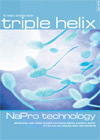A culture of gross drunkenness and violence, a civic life with rising crime and corruption, a society marred by social dislocation and sexual immorality, a church confused, divided and ineffectual – this is 21st century Britain – but also a picture of late 18th century Georgian England, where a small group of Christian men and women succeeded in transforming their society.
Hill opens his book with pen pictures of the main characters within an effective, campaigning, Christian community that was to be known as the 'Clapham Sect'. They worked not only to abolish slavery but also in Wilberforce's words 'to make goodness fashionable'.They succeeded in catalysing major social reform and in establishing the modern missionary movement. He outlines how their deep evangelical Christian faith impelled them both to seek the spiritual salvation of their fellow men and to work for their social and physical well-being.
This is a wide-ranging book, which looks at the social, economic, and religious roots of a deeply divided eighteenth century society and details how the Clapham group achieved massive change in the face of considerable political and social opposition. More disturbingly Hill outlines how Britain has frittered away the spiritual and social capital of the last two hundred years to reach our current morally and spiritually destitute society. His chapters on church history, which help explain the churches'weakness in rising to the challenge of secular humanism in the eighteenth century and to the challenge of post-modernism in the 21st, are particularly enlightening. He pulls no punches –you will be challenged to consider which aspects of your church history and church culture undermine your ability to be salt and light in modern society!
This is a readable, informative and well referenced book which will challenge you to reflect on how your life can make a difference.
The Clapham Saints were a mixture of scientists, businessmen, lawyers, politicians and churchmen who worked together and worshipped together, dedicating their money, time and talents to build the Kingdom of God. Hill's final challenge is to consider how we can do the same in our institutions (such as hospitals and the NHS) and how the church needs to change to equip us to do so. The book cites CMF as an example of how Christians can work together and encourage each other in bringing the Kingdom of God into the institutional workplace. As Rowan Williams concludes in his preface,'Hill challenges us to take seriously … how holiness can become compellingly attractive and transforming in a society'.
Buy it, read it, respond to it.
































